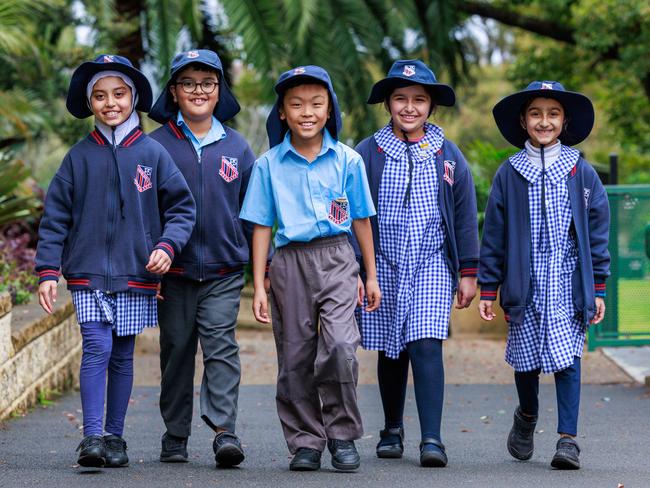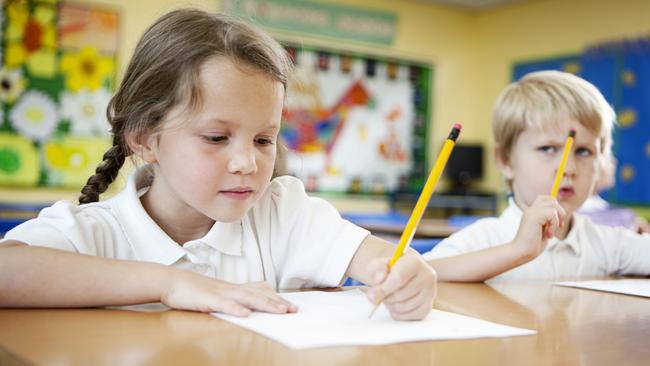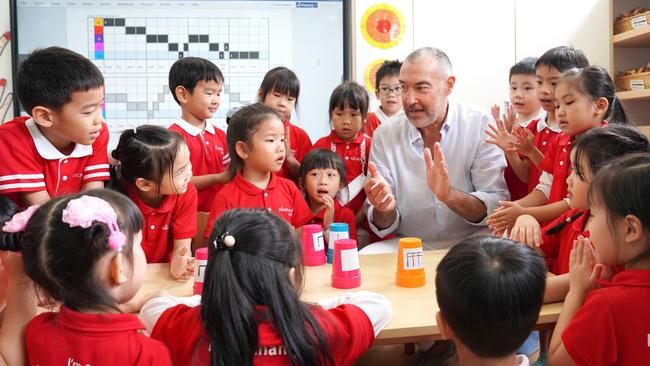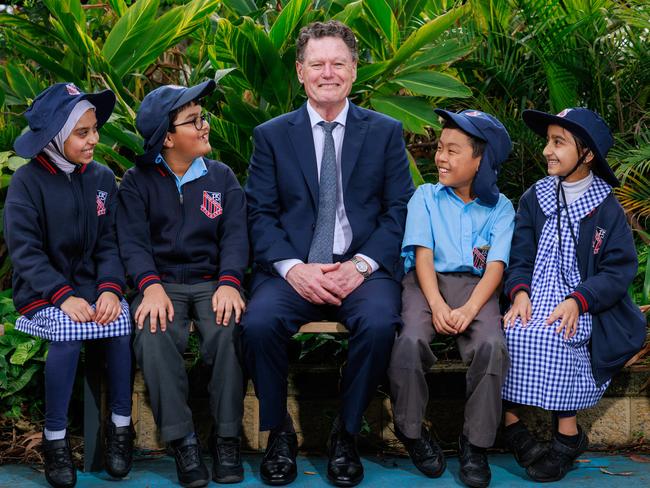2024 NAPLAN school results show NSW students are falling behind
NSW children are falling behind in the classroom, with new NAPLAN results revealing concerning declines in key areas.
NSW
Don't miss out on the headlines from NSW. Followed categories will be added to My News.
NSW students are falling behind in classrooms while increasingly using screens, with more pupils in years 3, 5 and 7 failing to meet Australia’s standards for reading.
The latest NAPLAN results show that, despite average scores in the reading test remaining consistent with last year’s exams, the proportion of students labelled as needing additional support has increased in all but the year 9 age group.
The dire figures come as experts warn that children learning to read on screens is not as effective as using books.
Others have also called on parents to encourage their children to write by hand instead of using digital devices.
More than 29.5 per cent of NSW school students are now below the national standard, compared to 28.65 per cent last year, with the youngest children assessed in the testing program struggling the most.

Among Year 3 students, 10.1 per cent now require additional support, up from 7.7 per cent in 2023.
Meanwhile, 22.1 per cent of Year 3 students were marked as exceeding expectations and doing well - an increase of 2 per cent.
While the Australian Curriculum Assessment and Reporting Authority (ACARA) says it’s too early to say if the results reflect a broader trend, the widening achievement gap between the top and bottom students has experts and public education advocates alike concerned.
Centre for Independent Studies education policy expert Glenn Fahey said teachers and policymakers needed to watch for any links between declining literacy and screen time.
He warned that learning to read through books was better than learning on screens.
“NAPLAN provides a valuable health check on Australia’s education system, (and) the current diagnosis is that student achievement is stable but not yet on the mend,” he said.
“The research is clear that learning to read by screen is much less effective than learning to read by print.
“Our heavy reliance on digital devices – including for young children – could over time limit students’ reading success.”
Finnish education expert Pasi Sahlberg called on parents to up their game in encouraging their kids to read books and write by hand.
“Just as if you don’t run or exercise you can’t improve your physical fitness, improving writing can only happen if you practice,” he said.

This year’s results also continue a long-term trend in which students’ writing ability declines as they age – while the vast majority of Year 3 students in NSW recorded ‘strong’ results, by Year 9 nearly 10 per cent fall into the lowest category.
Literacy scholar and UCLA Professor-in-Residence of Education Maryanne Wolf also backed in concerns those results could be linked to screens.
“There is growing evidence from (a study in Singapore) that the more digital exposure between 0 and 8, the worse the attention and the lower the academic performance,” she said.
Across the other testing domains – spelling, grammar and punctuation, and numeracy – the proportion of students not meeting the national standard remained consistent, at 26.5 per cent, 36.63 per cent and 30.23 per cent respectively.
NSW students lead the nation in eight of the 20 age and skill categories, followed by the ACT and Victoria.
NSW Education Minister Prue Car said there were “positive signs” in the 2024 NAPLAN findings, but “we cannot afford to take our eye off the ball”.
Ms Car has lobbed a NAPLAN grenade at her federal government counterparts, declaring the Commonwealth responsible for funding the programs necessary to improve kids’ reading.

Ms Car acknowledged “there is most definitely room for improvement” in the 2024 NAPLAN results, which revealed almost one in three students aren’t meeting national standards in reading.
When asked what her government would do to turn the results around, Ms Car said “explicitly teaching” the new K-6 curriculum being progressively rolled out through to 2027 “will most definitely help”, while other successful programs like small group tutoring would require the federal government’s help to execute.
The NSW government is in the midst of negotiations with the Commonwealth on the next decade of school funding, with NSW refusing to back down on demands for an extra $4.1 billion dollars.
Ms Car said while “we agree on the measures” being included in the Better and Fairer Schools Agreement, which includes continuing the Year 1 phonics check and introducing an early years numeracy check, those measures need to come with more money.
“The difference is, the level to which the Commonwealth are asking us to roll these out, we cannot do without further funding, she said.
“If Jason Clare actually realised how much need there is in our public schools and came forward with that funding arrangement to me today, we’d be able to roll it out everywhere.”
With 2200 public schools alone in NSW, Ms Car pointed out, the state’s public education sector is one of the biggest in the world.
“Everything rolled out at scale is expensive, and the national government needs to come to the table - it’s a national project.
“We need our children to improve, and we need our children invested in. I can’t think of anything more important than for a government than that.”
It comes as the head of the NSW Department of Education confirmed system-wide targets for improvement in literacy and numeracy will be introduced from 2025, in his inaugural mid-year ‘report card’.

“As we need 2 years of NAPLAN data to set a reliable baseline, we are currently setting success measures following the impending release of 2024 NAPLAN data,” Department Secretary Murat Dizdar wrote in an email to all staff on Tuesday.
At Auburn North Public School in Sydney’s west, under principal Mark Harris’ leadership schoolkids – 98 per cent of whom are from non-English speaking backgrounds – are bucking the trend, seeing improvements in Year 3 reading year on year.

Mr Harris puts it down to his students’ respectful attitudes, the hiring of “outstanding” teachers and most significantly, the involvement of parents who are invited twice a month to literacy “workshops” alongside their children.
“Our parents are just the most supportive, kind parents, and it makes the school a joyful place to come to every day – and I think the level of happiness here has a great deal to do with why we achieve pretty good things,” he said.
More Coverage
Originally published as 2024 NAPLAN school results show NSW students are falling behind





